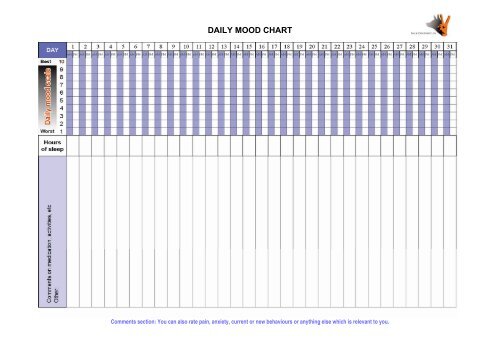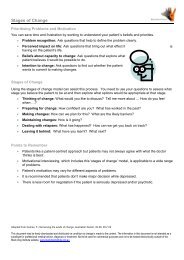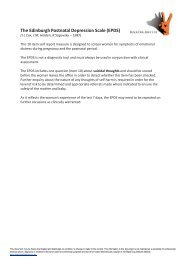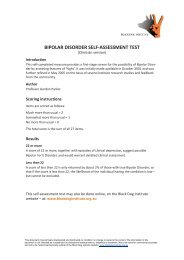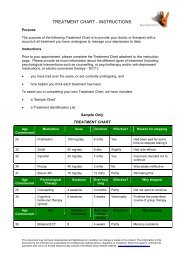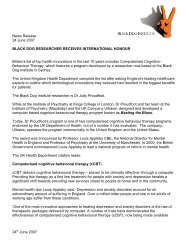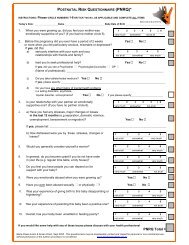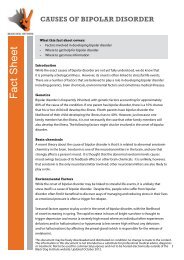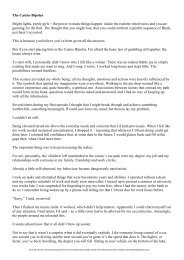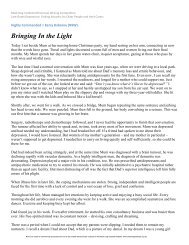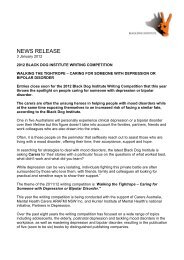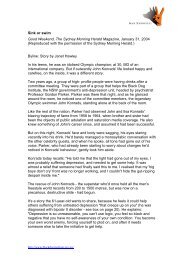Daily Mood Chart for Depression - Black Dog Institute
Daily Mood Chart for Depression - Black Dog Institute
Daily Mood Chart for Depression - Black Dog Institute
You also want an ePaper? Increase the reach of your titles
YUMPU automatically turns print PDFs into web optimized ePapers that Google loves.
DAILY MOOD CHART<br />
Comments section: You can also rate pain, anxiety, current or new behaviours or anything else which is relevant to you.
Monitoring Your Progress<br />
Below are some ideas <strong>for</strong> making the most of your visit to see your GP or<br />
Psychiatrist and ways that you can monitor your own progress<br />
The <strong>Daily</strong> <strong>Mood</strong> <strong>Chart</strong><br />
1. Using the daily chart, to give a global assessment on a day-to-day basis of<br />
mood, sleep, activities, significant events, both positive and negative.<br />
2. This is best done at the same time each day. You can plot both a morning and<br />
evening mood level, if required.<br />
3. You can also use this to monitor alcohol, other substances (either chart or<br />
mark amount in numbers), pain levels, episodes of anxiety and new activities<br />
started.<br />
4. You should also enter any changes in medication (prescribed or otherwise).<br />
Keep a journal<br />
1. This can be <strong>for</strong> your own thoughts or as a logbook of things you wish to<br />
remember.<br />
2. You can write <strong>for</strong> about 10 minutes a day, whatever comes into your head.<br />
You can write about what you are going through, what you need to plan or do,<br />
anything that is meaningful to you.<br />
Review treatment and lifestyle goals on a regular basis<br />
This can be done in your journal or using the Goal Setting sheet.<br />
Keep a list of questions you have<br />
1. It can be hard to recall questions when you’re there in the consultation, so<br />
keep a list of your questions and take it with you. It is often useful to take<br />
someone else with you, especially if you are very worried or are having trouble<br />
concentrating or with your memory.<br />
2. If you have other in<strong>for</strong>mation (books, papers, internet searches), it is useful to<br />
take this to show what in<strong>for</strong>mation you have been reading.<br />
Keep a list of all medications you are taking<br />
1. It is important to record past medications (what you have taken? when? <strong>for</strong> how<br />
long? good and bad effects, why stopped?)<br />
2. Take the list of the medications with you when you see your GP.<br />
http://www.blackdoginstitute.org.au


